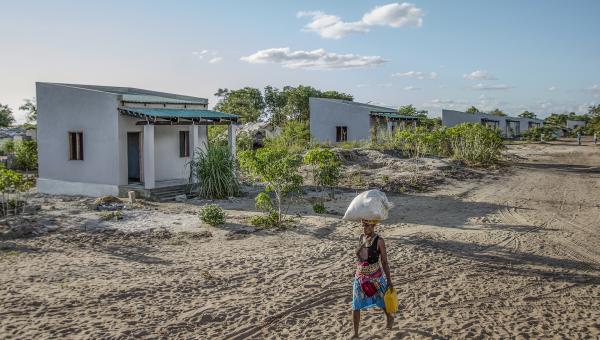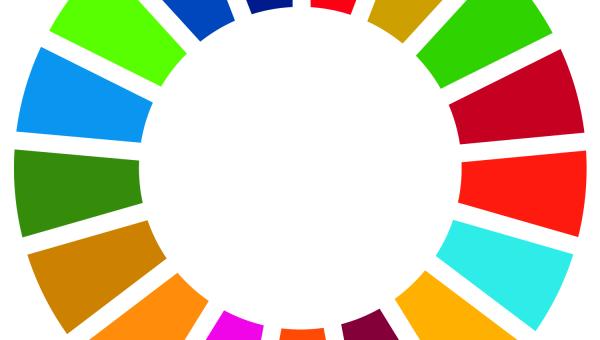
Mozambique
Climate Resilience and Sustainable Use of Natural Resources
The Climate Resilience and Sustainable Use of Natural Resources Programme in Mozambique focuses on promoting a coherent, effective and evidence-based response to climate change and natural hazards and, at same stage, improve the sustainable use of natural resources. UNDP in Mozambique has been creating and implementing a standard guidelines of construction, rehabilitation and retrofitting of houses, with construction of model houses; trainings local masons on the theme of safe and resilient construction techniques; development of resilient construction training packages for the engineers of public and private sectors.
In Depth
Climate Resilience
As the main government partner for Disaster Risk Resilience and Climate Change Adaptation, UNDP Mozambique has significant experience in working with the adaptive capacity building of vulnerable populations and climate-proofing in the region. Moving forward, UNDP will together with UNEP deliver its Climate Promise through facilitating access to the Global Environmental Facility (GEF) and the Green Climate Fund (GCF) to support implementation of Mozambique’s Action Plan for Climate Change, 2020-2025, and deliver on its Nationally Determined Contribution targets. These interventions aim towards strengthening the capacity of communities and district, and enable the Government to plan for, and adapt to, climate change and increasing the resilience of vulnerable communities and the sustainability of their livelihoods.
Natural Resource Management and Biodiversity
UNDP is supporting national and local policy makers, governmental and non-governmental actors to improve the capacity to combat illegal wildlife crime (IWT) and towards a comprehensive management of natural resources in Mozambique.
As a country rich natural resources, fertile lands, minerals, a long coastline and vast forests, UNDP aims to bring up solutions for biodiversity conservation, transparent and inclusive management of the environment and natural resources for resilient and equitable growth and development. Furthermore, UNDP is committed to upscale and strengthen interventions that support biodiversity and the diversification of ecosystem services which will contribute to national plans and targets, enhance inclusive conservation and sustainable resource use, and the financial sustainability of protected areas.
Resilient Housing and Community Infrastructure
UNDP is working closely with the government and local authorities to rehabilitate and reconstruct houses, schools, public buildings, health facilities, rural market centres and water supply systems, in line with the Building Forward Better approach and resilient construction techniques.
The ongoing activities to ensure more resilient and risk-informed constructions include:
(a) Training of Artisans: A total of 155 local artisans from resettlement sites and communities affected by cyclone have been trained in resilient construction techniques. Among these, 77 bricklayers are from Dondo District and 78 bricklayers from Chibabava district.
(b) Training of Engineers: A total of 73 engineers and architects from the universities in Beira are being trained in resilient construction techniques. These graduate engineers, under the supervision of senior engineers and university lecturers, were provided opportunities in the communities where self-construction and self-repair of houses are in progress to learn practically the techniques of resilient housing construction and to advise house owners on safe and resilient construction.
(c) Rehabilitation of office to restore public services: Rehabilitation and reconstruction of the key government offices important for provision of basic social services. The resilient structural rehabilitation projects of priority buildings also included the essential provision of office equipment and furniture, so that the offices are recovered back from the damages of disasters and fully functional to provide services back to the population. These building includes.
-
The rehabilitation and construction of fence wall and provision of all essential equipment; furniture of the Municipal Library of Dondo district;
-
Beira District Administration Office Complex.
Resilient Reconstruction and Rehabilitation of houses: Self-rehabilitation and self-construction of houses with BBB standards and resilient technique progressing well beyond the set targets. The project also aims to build local capacity (communities, artisans, engineers and local authorities) on resilient construction and rehabilitation of house. The rehabilitation and reconstruction of houses includes.
-
Rehabilitation of 600 houses in Beira and Dondo districts;
-
Reconstruction of 520 new houses in resettlement sites in Dondo and Chibabava districts.
Resilient Restoration of Education Services
-
Construction of eight (8) primary schools (6 in Chibabava and 2 in Dondo); These schools will serve approximately 13,921 students, 360 teachers and 32 administrative staff. The project includes 40 new classrooms, 32 administration offices and 64 latrines including provision of required furniture, sanitation and solar powered light as well as PWD accessibility means.
-
Rehabilitation of Samora Machel Secondary School: This is one of the largest schools in the Beira city, serving a total of 5,904 students on daily basis. The rehabilitation work includes complete replacement of roof, repair of structure, premise walls, construction of two toilets for handicap, two ramps, solar outdoor lights, windows, and fence as well as the replacement of destroyed furniture and repair of damaged desk and chairs.
-
Estoril Secondary School (Beira): The school was severely damaged by the cyclones. The rehabilitation includes the blocks of eight classrooms, canteen, library, toilets and the school administration. New construction works include a fence wall, outdoor sidewalks, and playground. This school is serving 4,818 students.
-
Rehabilitation of Palmeiras Primary School (Beira): The rehabilitant of the school will commence in 4th quarter of 2021. The rehabilitation includes the two classroom blocks and 4 blocks of latrines. This school is serving 3,328 students.
-
Rehabilitation of Matacuane Primary School (Beira): The rehabilitation will commence in quarter 4 of 2021. The project consists of rehabilitation of three blocks composed by 12 classrooms, school administration block, canteen, sanitation facilities and two blocks of toilets, playground and fencing wall and exterior sidewalks that are part of the school. This school is serving 2,678 students.
-
Agostinho Neto Primary School (Beira): The rehabilitation will commence later in 2021. The rehabilitation includes the two floors building composed of 10 classrooms, administrative offices, gymnasium, conference hall, multipurpose playground, toilets and fence wall that are part of the school complex. This school will serve approximately 1,430 students.
Resilient Restoration of Health Services
-
Rehabilitation of Chinamacondo Health Clinic Dondo district: The resilient rehabilitation includes the main building and blocks of latrines that are part of the clinic complex. The clinic will serve around 6,059 people of the surrounding communities.
-
Rehabilitation of Sengo Health Clinic Dondo district: The rehabilitation of the main building and blocks of latrines that are part of the clinic complex. The clinic will serve around 7,059 people.
-
Rehabilitation of Manga Loforte Health Clinic, Beira City: The rehabilitation of the main building and blocks of latrines that are part of the hospital complex. The clinic will serve around 10,000 people.
Resilient Restoration of Productive and Economic Infrastructures
Three rural markets Construction; Resilient construction of seven rural market blocks; one in Buzi, two in Chibabava, two in Nhamatanda and two in Dondo districts. These markets are provided with the toilets, water supply, solar powered light and rainwater harvesting facilities, access ramps for people with disabilities and plantation around the open area of the market. In total 8,842 people will have access to restored services.

 Locations
Locations
